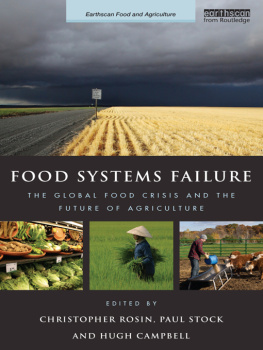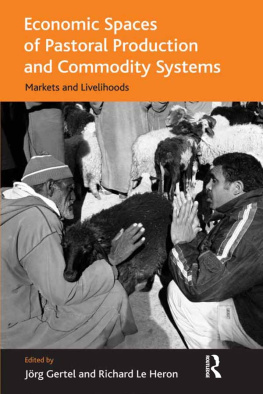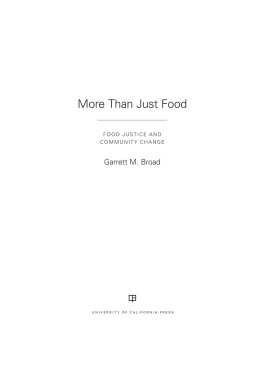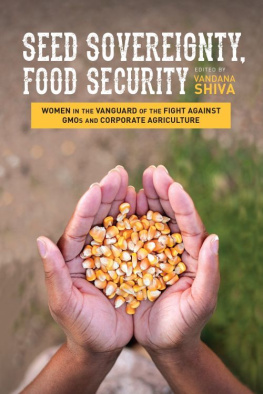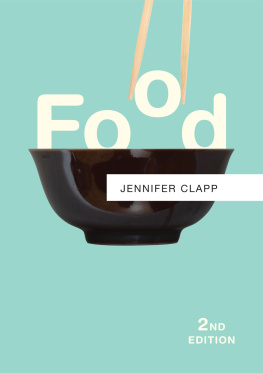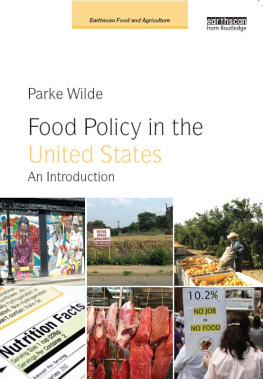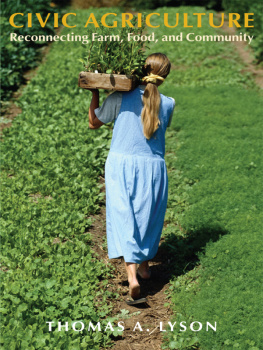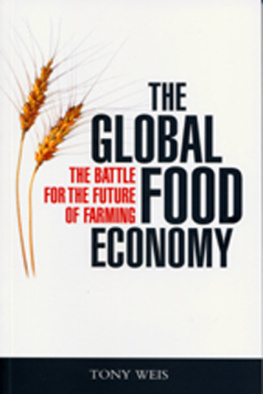LIST OF FIGURES AND TABLES
Figures
| 7.1 |
| 9.1 |
| 10.1 |
| 11.1 |
| 12.1 |
| 12.2 |
| 13.1 |
Tables
CONTRIBUTORS
Bustanul Arifin is Professor of Agricultural Economics in the University of Lampung and Professorial Fellow in the International Center for Applied Finance and Economics at Bogor Agricultural University (IPB). He has published 36 books and over 80 journal articles and book chapters. He is currently a member of the Food Security Council, National Innovation Council, and the Advisory Team for International Trade Negotiations.
Colin D. Butler is a research academic at the Australian National University, and also medical director of BODHI, an NGO he co-founded in 1989. BODHI has projects with poor and marginalized people in seven Asian countries. In 2009, Colin was named as one of the 100 doctors for the planet.
Hugh Campbell is Professor of Sociology and former Director of the Centre for the Study of Agriculture, Food and Environment (CSAFE) at the University of Otago, New Zealand. His research interests include rural sociology, sustainable agriculture, neoliberalism and agri-food governance, food waste, masculinity and rural gender.
Michael Carolan is an Associate Professor of Sociology at Colorado State University. His areas of expertise include environmental sociology, food and agricultural policy, and social theory. He is author of the recently published books The Real Cost of Cheap Food (Earthscan, 2011) and Embodied Food Politics (Ashgate, 2011).
Jane Dixon is Senior Fellow at the Australian National University. Her research on the public health implications of food system transitions takes place in Australia and Thailand.
Ian Gray is Adjunct Associate Professor at Charles Sturt University at Wagga Wagga, NSW. His research interests cover the sociology of community, rural sociology, local government, urban society, transportation and the environment. He has conducted numerous research studies in rural Australia including investigations of drought, farming practices, small-town sustainability and attitudes to regionalism.
Naomi Hansar received first class honours for her thesis Community Supported Agriculture: An Expression of Environmental Citizenship? at The University of Queensland in 2009, under the supervision of Professor Geoffrey Lawrence. During 2010 and 2011 she has been Coordinator of the Food Security Focal Area for the Global Change Institute at the University of Queensland.
Doug Hill is Senior Lecturer of Geography at the University of Otago, New Zealand. His research has focused on comparative political economy in South Asia, rural development, port sector and maritime trade; common property issues, especially forests; and transboundary issues related to water resources.
Geoffrey Lawrence is Professor of Sociology, Co-Leader of the Food Security Focal Area for the Global Change Institute, University of Queensland, and a Fellow of the Academy of Social Sciences in Australia. His career includes over $10 million in grants and 25 books, most recently Supermarkets and Agri-food Supply Chains (Edward Elgar, 2007) and Food Security, Nutrition and Sustainability (Earthscan, 2010).
Kristen Lyons is Senior Lecturer in the School of Social Science at the University of Queensland, researching topics related to the sociology of food, agriculture and the environment. She has been involved in food-related campaigns with Friends of the Earth Australia. She co-edited Food Security, Nutrition and Sustainability (Earthscan, 2010).
Claire Mahon is an international human rights lawyer based in Geneva. She was advisor to the former UN Special Rapporteur on the Right to Food, Jean Ziegler, and Special Advisor to former UN High Commissioner for Human Rights, Mrs Mary Robinson. She is the co-author of The Right to Food: Lessons Learned.
Philip McMichael is Professor of Development Sociology, Cornell University. He authored Settlers and the Agrarian Question (1984) and Development and Social Change (2008), and edited Contesting Development: Critical Struggles for Social Change (2010). He has worked with FAO, UNRISD, Va Campesina and the IPC for Food Sovereignty and is researching the land-grab question.
Jeff Neilson is a Lecturer in Geography at the University of Sydney, where he teaches on economic geography, natural resource management and rural development in South East Asia. His research interests include the environmental and livelihood implications of smallholder engagement with global value chains, for agricultural commodities such as coffee and cocoa.
Jules Pretty is Professor of Environment and Society at the University of Essex. His 18 books include This Luminous Coast (2011), Nature and Culture (2010), The Earth Only Endures (2007), and Agri-Culture (2002). He has received an OBE (2006) for services to sustainable agriculture and an honorary degree (Ohio State University, 2009). More details can be found at www.julespretty.com.
Bill Pritchard is Associate Professor in Economic Geography at the University of Sydney, with research interests in the links between globalization, agri-food industries and food security. He has published widely on topics including agri-food value chains, regional development issues in Australia, and rural restructuring in India.
Carol Richards is a Postdoctoral Research Fellow in the School of Social Science at the University of Queensland. She has published in the areas on food, farming and natural resource management with a recent focus on mass food retailing and retailer power. She is the current Convenor of the Australasian Agri-food Research Network.
Christopher Rosin is a Research Fellow at the Centre for Sustainability: Agriculture, Food, Energy, Environment, University of Otago. As a member of the transdisciplinary ARGOS research team, his research involves the interrogation of agricultural sustainability including farmer response to climate change and the moral justification of farming practice.
Kiah Smith is a Research Analyst at the United Nations Research Institute for Social Development (Geneva) with a focus on corporate social responsibility and multi-stakeholder regulation, green economy, and alter-globalization movements. She holds a PhD in Environment and Development Sociology (University of Queensland) and maintains research interests in global food security, gendered political economy and qualitative/participatory research methods.
Paul Stock is a Lecturer in Sociology and Research Fellow with the Centre for Sustainability: Agriculture, Food, Energy, Environment at the University of Otago in Dunedin, New Zealand. Pauls current research interests include the social and cultural aspects of agriculture, the intersection of morality and the environment, and the Catholic Worker movement.
Alec Thornton is a Lecturer in Development Geography at the University of New South Wales in Canberra, Australia. His research interests include urban agriculture and urban ecosystems, religion and civil society, capacity building and community-based development in developing countries.
Nav Wald is a PhD candidate in the Department of Geography, University of Otago, New Zealand. His work focuses on peasant and indigenous organizations in Northwest Argentina and their discourses, challenges and praxis, examining them as particular models of development.
Robert T. Watson is Professor of Environmental Sciences and Director of Strategic Investment at the Tyndall Institute (University of East Anglia). He also serves as the Chief Scientific Advisor to the Department for Environment, Food and Rural Affairs (Defra) in the UK, and has served as chair of the IAASTD (current) and the IPCC (former).

